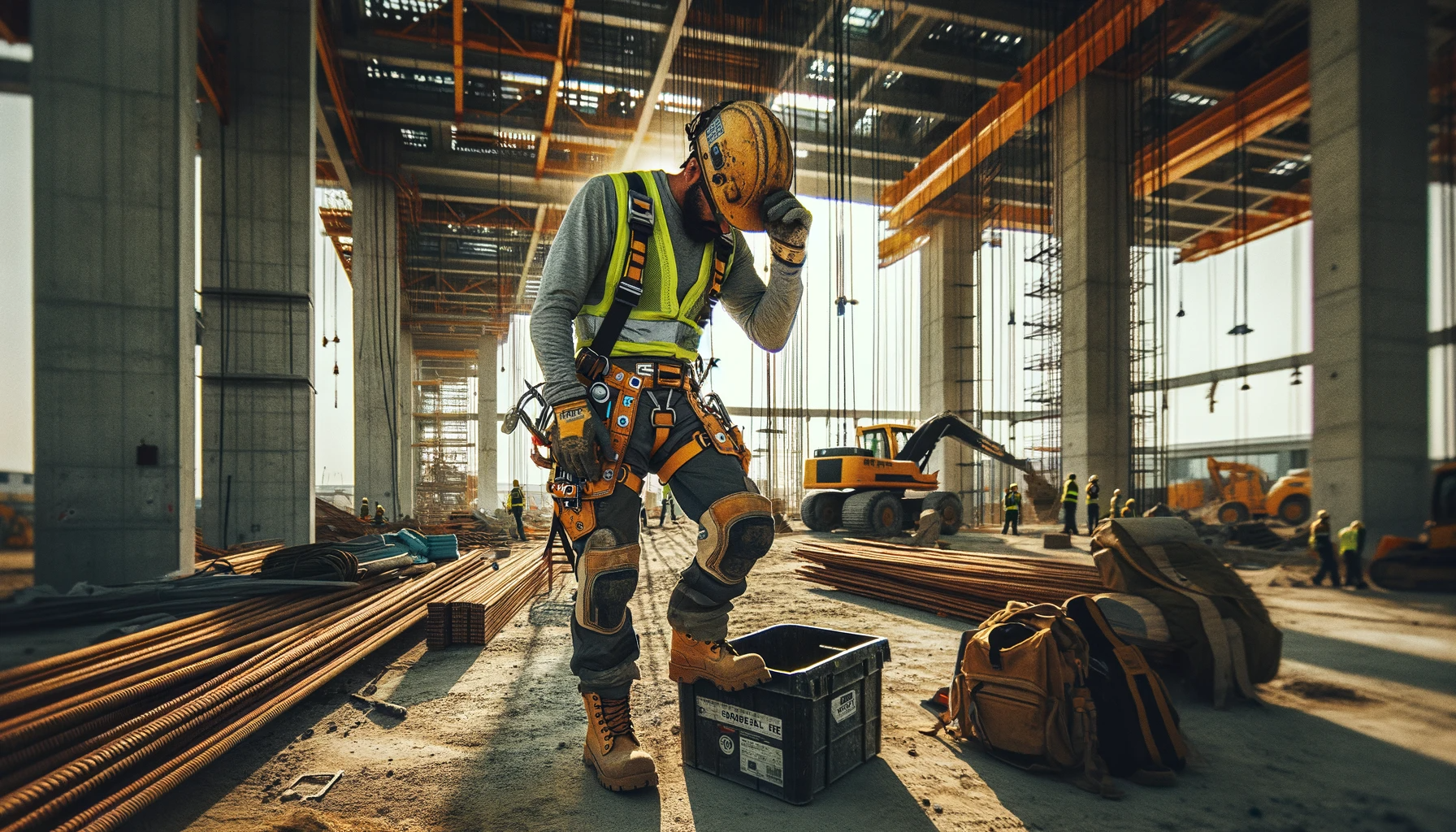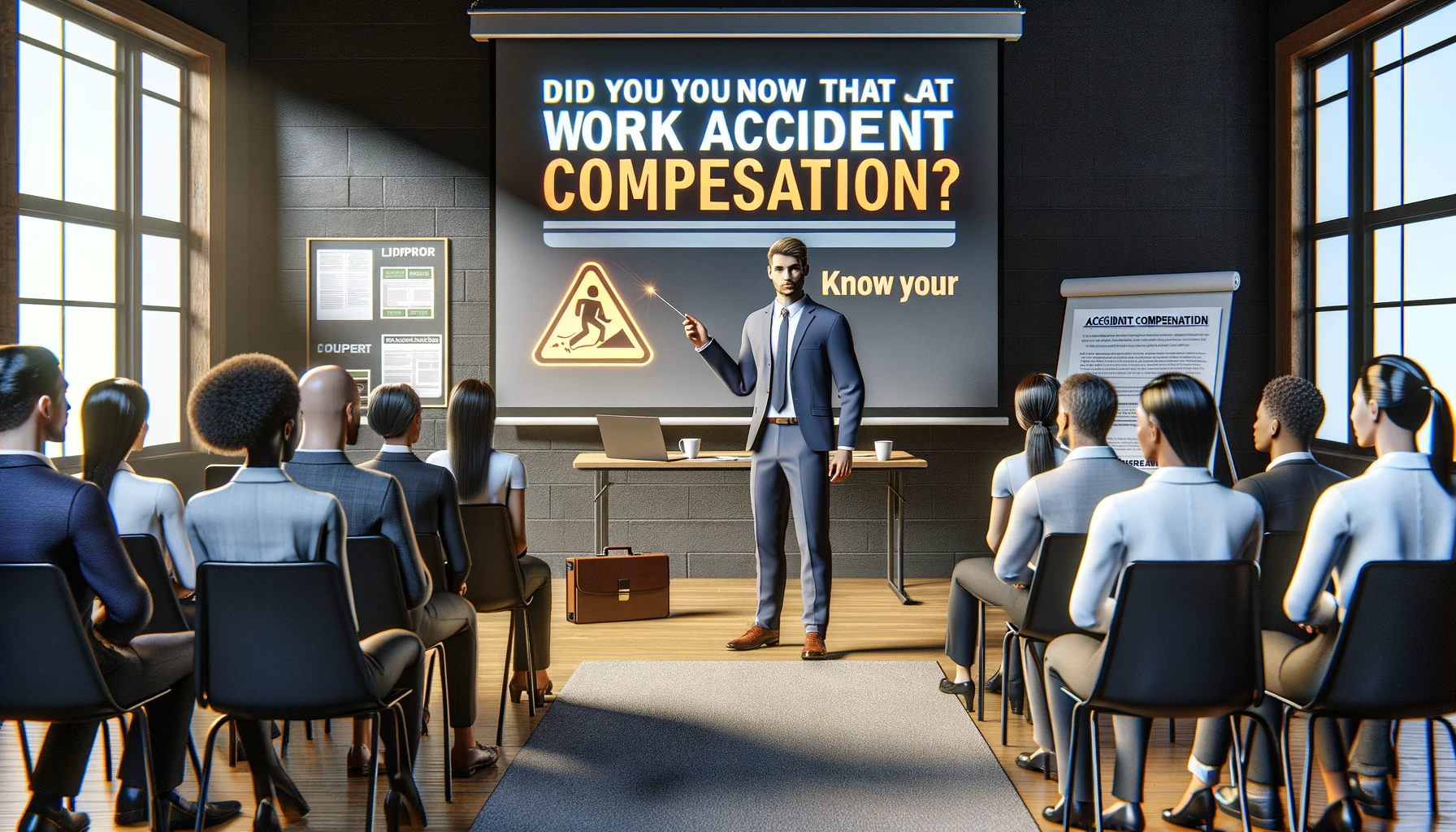In the workplace, accidents are a latent possibility. A full understanding of our labor rights and the routes to claim adequate compensation in case of an accident is crucial. This article aims to provide a comprehensive guide on the nature of workplace accidents and the procedures for obtaining compensation.

 In many situations, the intervention of a lawyer specialized in labor law is key to ensuring fair compensation. A lawyer can guide the worker through the complex legal process, from preparing the claim to representation in litigation, if necessary.
In many situations, the intervention of a lawyer specialized in labor law is key to ensuring fair compensation. A lawyer can guide the worker through the complex legal process, from preparing the claim to representation in litigation, if necessary.
Definition of Workplace Accident
A workplace accident is considered any incident that occurs during the working day or as a direct result of work activities. This ranges from falls and physical injuries to occupational diseases caused by the work environment, such as exposure to hazardous substances. It is important to highlight that not only obvious accidents, but also those of a more subtle nature, such as injuries from repetitive strain, are covered.Legislation on Workplace Accidents
The labor legislation of each country establishes a framework of rights and obligations for both workers and employers. These laws regulate everything from safety in the workplace to the processes of compensation for workplace accidents, ensuring that workers receive the proper treatment and compensation in case of an accident.
Compensation Process
After a workplace accident, the worker must immediately inform the employer and seek professional medical attention. It is crucial to properly document the accident and personal injuries suffered, as this documentation will be fundamental in supporting the compensation claim. The process varies according to jurisdiction, but generally involves filing a claim through the company or a work insurance.What Does Compensation Cover?
Compensation for workplace accidents can range from medical expenses and rehabilitation to compensation for temporary or permanent disability. In some cases, compensation for moral damages or psychological suffering can also be provided. However, the laws of each country determine the limits and conditions of these compensations.Roles of Employers
Employers have a legal duty to provide a safe work environment and must comply with safety regulations and occupational risk prevention. This includes adequate training of employees on safety measures and procedures to follow in the event of an accident.Case Study
We will analyze a practical case of a worker who suffered a workplace accident and how their case was handled, including the claim filed, negotiations with the employer or insurer, and the final compensation obtained.Tips for Workers
It is vital that workers know their rights and the steps to follow in case of an accident. It is recommended to report any incident immediately and seek legal advice to ensure that their rights are respected and adequate compensation is obtained.Role of Lawyers
 In many situations, the intervention of a lawyer specialized in labor law is key to ensuring fair compensation. A lawyer can guide the worker through the complex legal process, from preparing the claim to representation in litigation, if necessary.
In many situations, the intervention of a lawyer specialized in labor law is key to ensuring fair compensation. A lawyer can guide the worker through the complex legal process, from preparing the claim to representation in litigation, if necessary.
Judicial Process in Case of Dispute
If there is a dispute over compensation, the case may proceed to a judicial process. Here, the different stages of litigation will be discussed and the importance of having solid evidence and competent legal advice.Prevention of Workplace Accidents
We will address the importance of implementing preventive measures in the workplace to minimize the risk of accidents. Safety culture is essential for both employers and employees.Testimonies and Experiences
We will include stories from workers who have experienced workplace accidents, providing a real and practical insight into the impact of these events and how they were legally handled.Additional Resources
We will provide information on where workers can seek help and advice, including references to organizations and entities that support in cases of workplace accidents.Conclusions
In summary, this article delves into the complexity of workplace accidents, highlighting the importance of knowing our rights and the measures to take in case of suffering one. From the definition and relevant legislation to the compensation process and prevention, a comprehensive guide has been offered to navigate these situations. Preparation, immediate action, and legal advice are key to ensuring a safe and fair work environment for all.Look for an attorney who has the right legal resources for your legal needs.
Contact us here on the Warmuth Law website or through our hotline 888-517-9888.
Frequently Asked Questions (FAQs)
- What Should I Do Immediately After a Workplace Accident? The first thing is to seek medical attention to treat any injury. Then, it is crucial to inform the employer about the accident as soon as possible, preferably in writing. It is also important to collect and keep any evidence of the accident, such as photographs of the place and witness statements. This will be essential for any subsequent claim.
- How Do I Know If I Am Entitled to Compensation? The right to compensation depends on whether the accident occurred during the performance of work activities or in the work environment. If the accident is a direct consequence of your work activities or working conditions, you generally have the right to compensation. However, each case is unique and must be evaluated based on the specific circumstances and current legislation.
- What Types of Compensation Can I Receive? Compensation can include coverage of medical expenses, compensation for temporary or permanent disability, and in some cases, compensation for moral damages or suffering. It can also cover rehabilitation and training necessary to return to work or for professional retraining in case of permanent disability.
- Is It Necessary to Have a Lawyer to Claim Compensation? Although not strictly necessary, it is highly recommended. A lawyer specializing in labor law can help you understand your rights, prepare the necessary documentation, and represent you before the company or in court if necessary. The experience and knowledge of a lawyer significantly increase the chances of obtaining fair compensation.
- What Happens If My Employer Refuses to Recognize the Accident? In this case, it is essential to have the advice of a lawyer. The lawyer can help you gather additional evidence and file a formal claim. If the employer continues to deny the accident, the case may escalate to a judicial process, where a judge will determine the responsibility and corresponding compensation based on the evidence presented.











